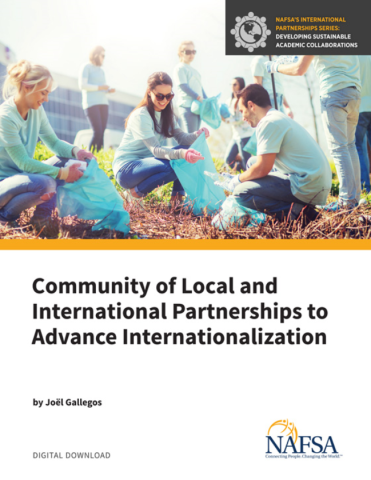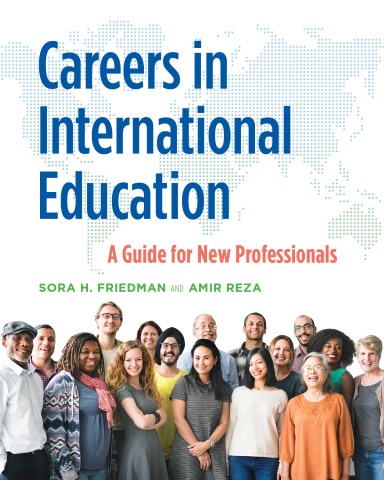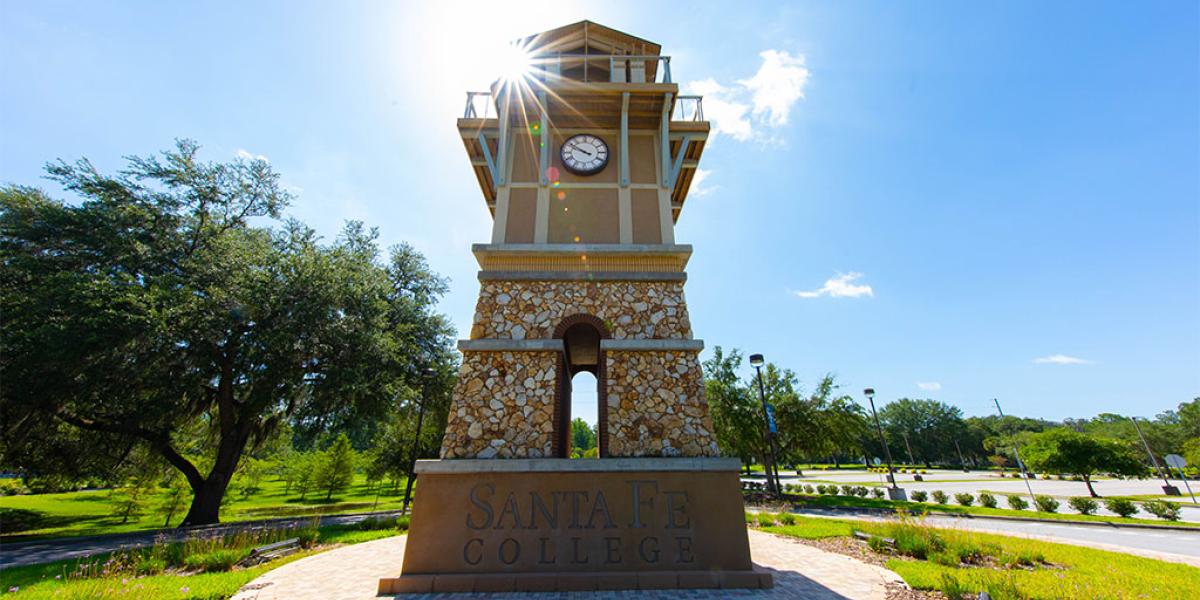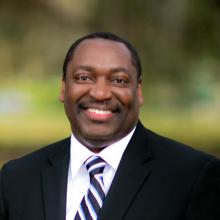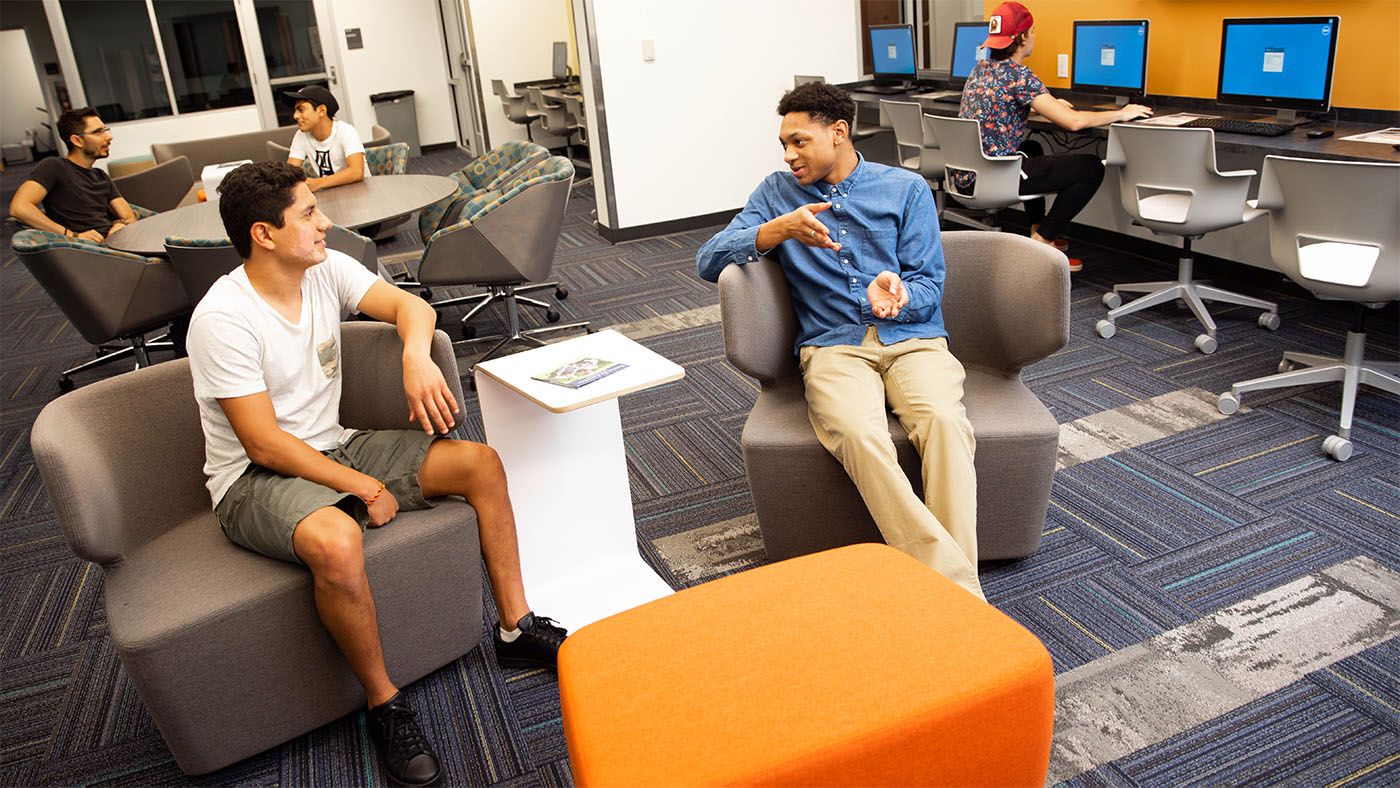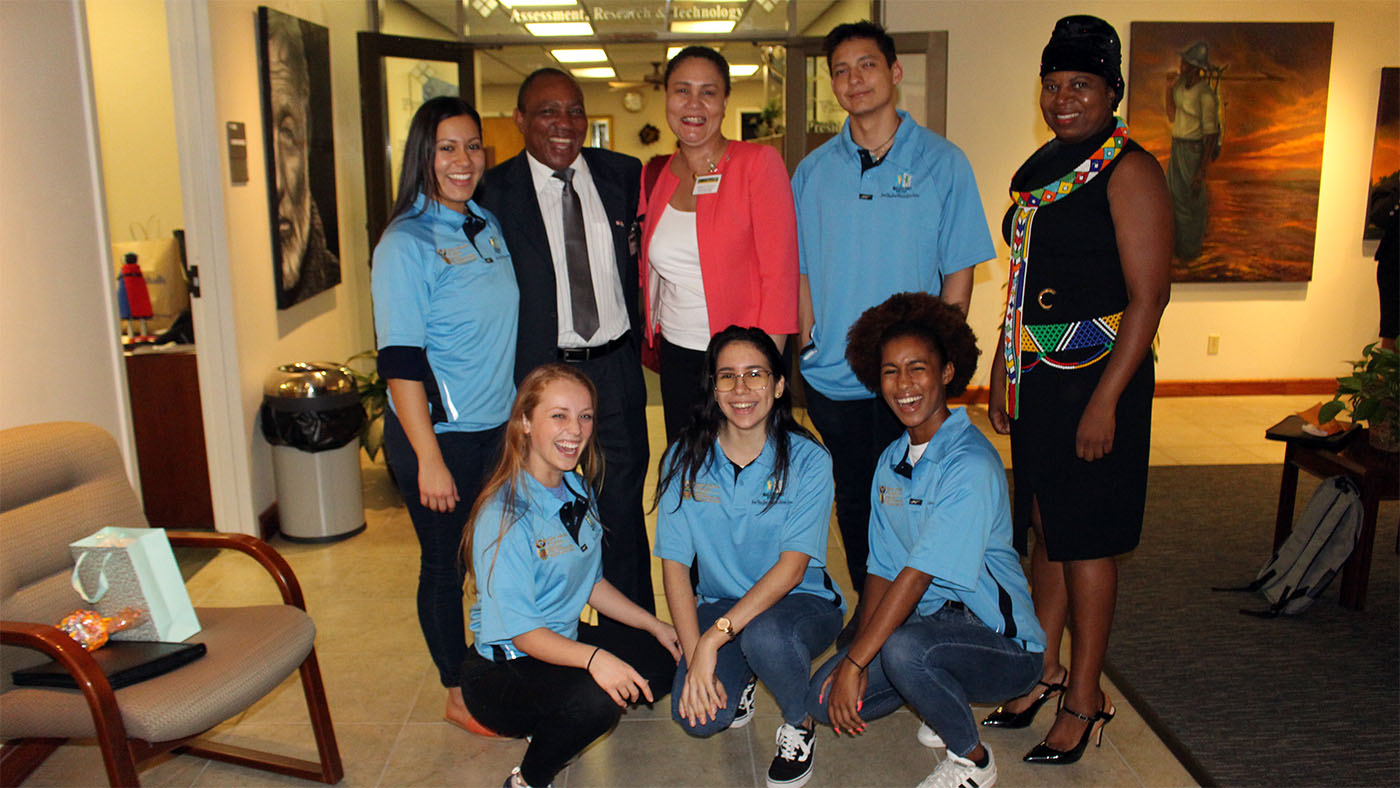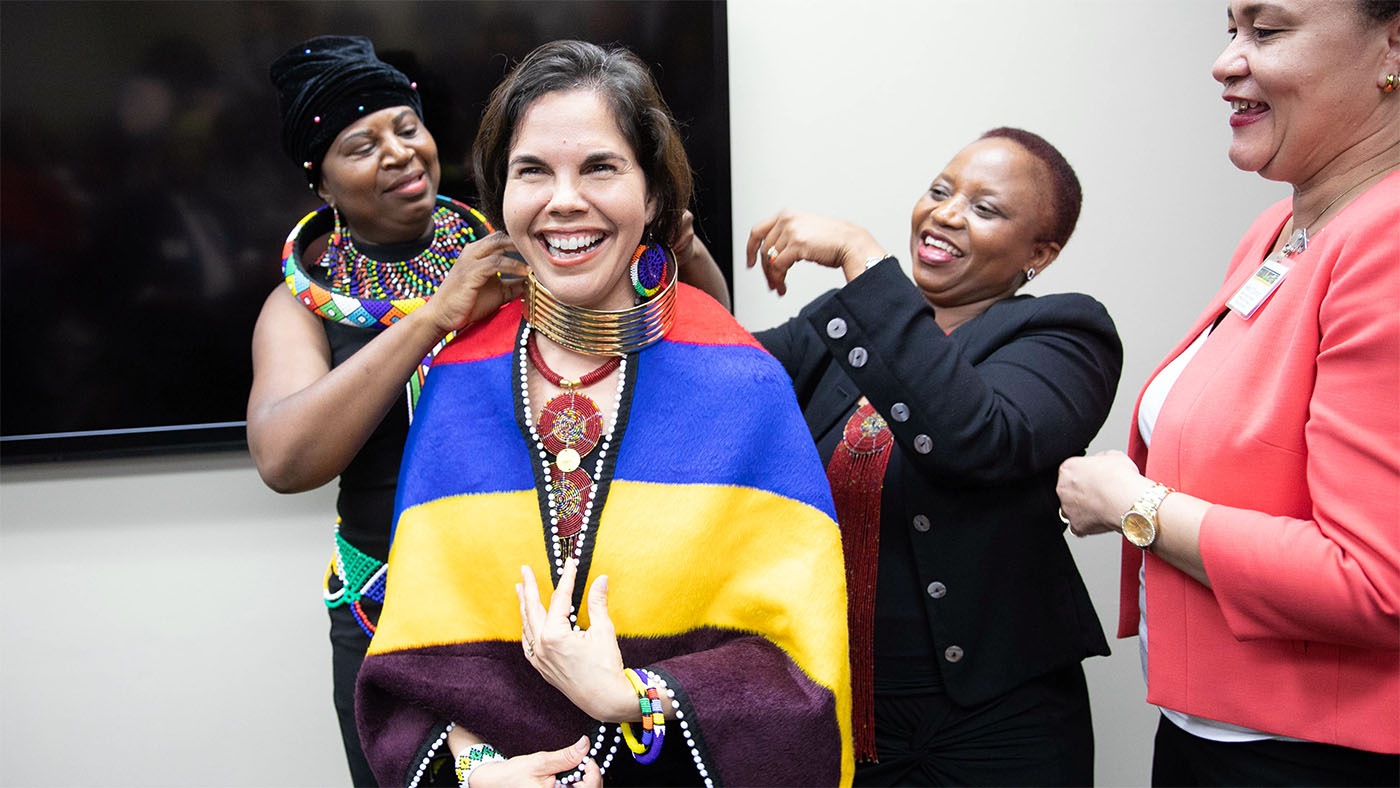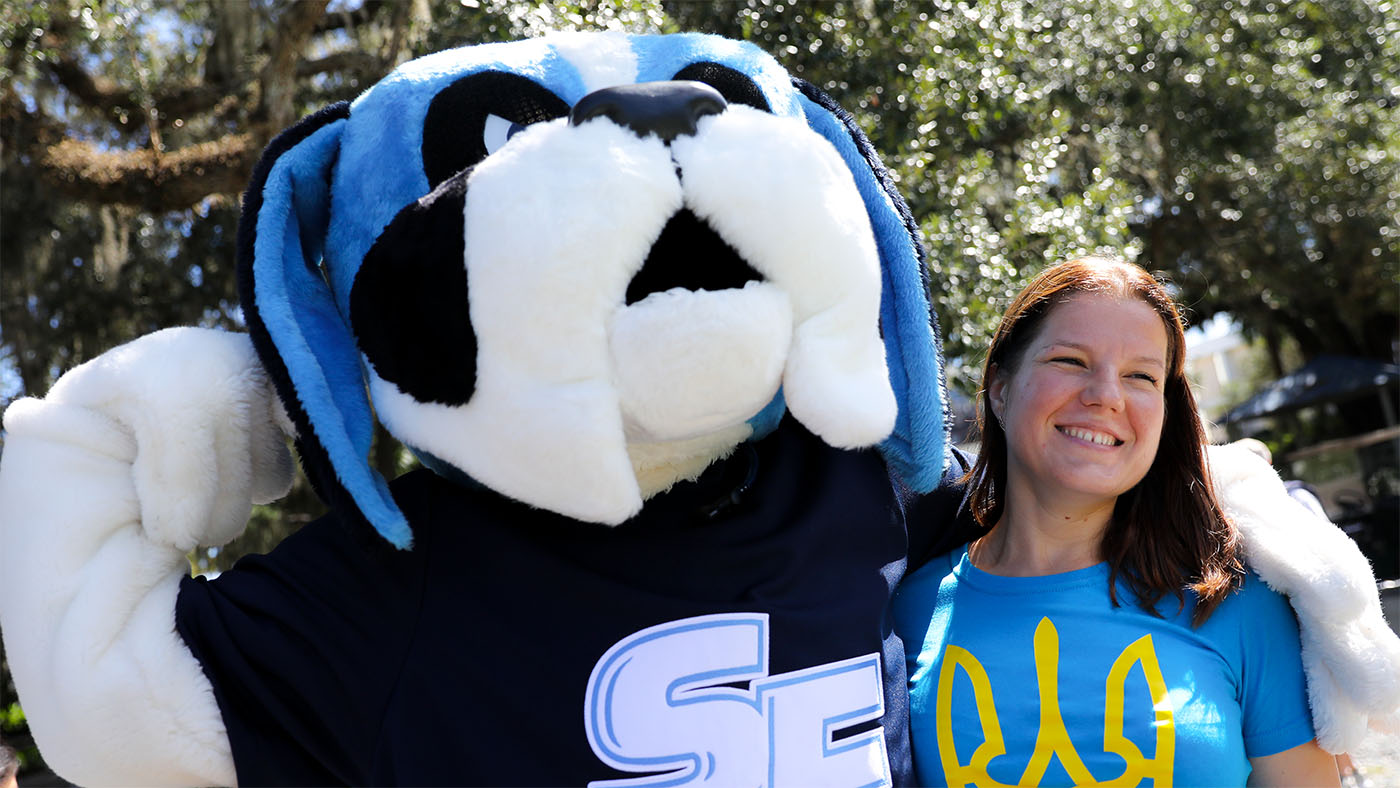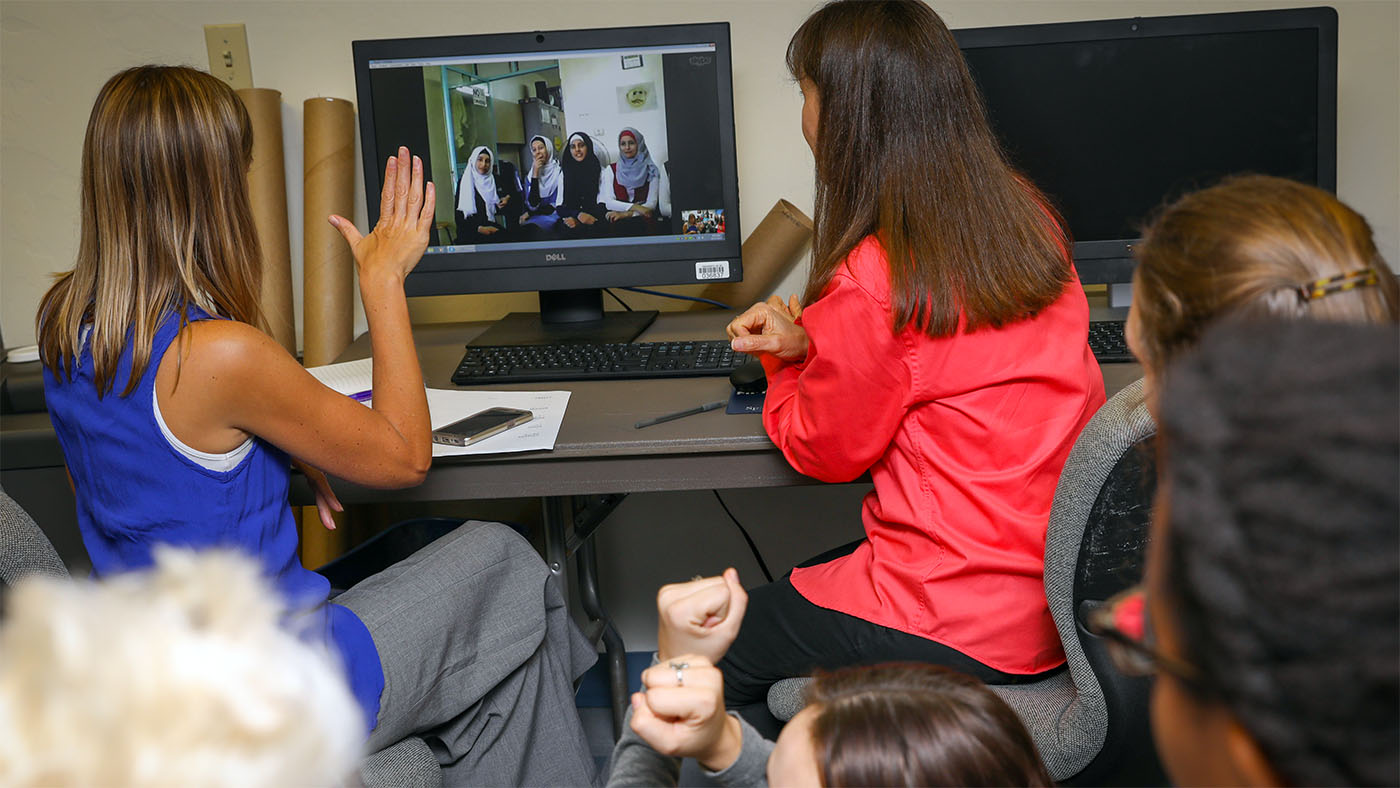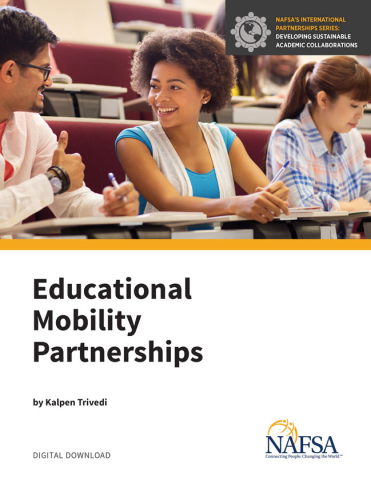
Relationship Cultivation

Education Abroad Alliances: Building Relationships with Key Offices on Campus
IE Competencies 2.0: Compliance Management; Relationship Cultivation; Risk Assessment & Crisis Management
2023 Latin America and Caribbean Forum
Advocacy Strategies for Advancing International Education
Celebrating Student and Alumni Success Stories: A Collegial Conversation on Model Practices
Latin America and Caribbean Forum 2022
2021 Comprehensive Santa Fe College
By increasing its study abroad offerings, internationalizing the curriculum, and hosting international students, Santa Fe College has brought the world to the 20,000 students studying on its main campus and six education centers near Gainesville, Florida. Participation in a number of federally funded programs has helped the college build robust partnerships with institutions abroad, leading to student and faculty mobility, virtual exchanges, and institutional collaboration. The community college, which offers both associate’s and bachelor’s degree programs, has also developed an international studies certificate that allows students to showcase their global engagement.
Building On Decades of Global Engagement
Santa Fe College began its internationalization efforts in the early 2000s under the leadership of Jackson Sasser, PhD, its former president. “When we first started this journey, those of us working in academic affairs thought of internationalization as internationalizing the curriculum and study abroad—nothing else,” says Vilma Fuentes, PhD, assistant vice president for academic affairs and senior international officer. Over time, there was a gradual understanding that “internationalization must be seen as a multifaceted process.”
As a department chair in 2002, Ed Bonahue, PhD, who served as provost from 2009 to 2021 and is now president of Suffolk County Community College in New York, was involved in creating Santa Fe’s first plan for international education. The plan had four pillars: (1) boosting international student enrollment; (2) creating globally focused and multicultural programming on campus; (3) internationalizing the curriculum and developing study abroad; and (4) internationalizing workforce and economic development efforts. The plan paved the way for a series of external grants and an internal structure that helped the college become an international education leader.
“Internationalization goes directly to our college mission,” Bonahue says. “When I think about what that mission means, it’s always connected to the idea that we are educating students and educating our community—that we’re part of an interconnected world.”
In 2004, Bonahue also helped author the college’s first Title VI grant from the U.S. Department of Education that provided funding for international studies and world languages. The college has subsequently received two more grants and expanded its foreign language offerings to include American Sign Language, Chinese, French, and Spanish, as well as Italian, Portuguese, and Swahili periodically.
In addition to a variety of internationally focused campus programming through Fulbright and other initiatives, the college runs six faculty-led study abroad programs per year and hosts approximately 350 international students. Early internationalization focused more on liberal arts and sciences, while more recent efforts have focused on internationalizing the career and technical fields.
In 2018, the college brought together the International Education Office, International Student Services, International Student Support and Advising, and English for Academic Purposes into one physical location, the International Center. Santa Fe invested more than $700,000 to renovate an existing building.
“We wanted to create a physical space where international students and domestic students interested in the world could interact and mingle, synergies could be created, and opportunities could be developed that maybe we weren’t otherwise seeing,” Fuentes says.
Santa Fe President Paul Broadie II, PhD, joined the college in February 2020. “One of the things that truly attracted me to Santa Fe College was its focus on internationalization of the curriculum and how expansive it was,” he says. “Other institutions, they may do study abroad, and you will have a few faculty members that embrace that global curriculum, but this was widespread across our entire institution.”
Growing Expertise Through the Community College Administrator Program
Santa Fe has co-administered U.S. Department of State-funded Community College Administrator Programs (CCAP) since 2014. Together with Florida State University, a 2017 Simon Award recipient, Santa Fe has hosted 10 CCAP cohorts from 10 different countries: Brazil, Colombia, Ecuador, Egypt, India, Indonesia, Pakistan, Peru, South Africa, and Ukraine.
Visiting administrators spend 2 weeks of a six-week program at Santa Fe seeing the daily operations of a U.S. community college.
“We’re very happy to be involved with that training program because it brings a lot of know-how that’s unique to [U.S.] higher education to the rest of the world, to other kinds of tertiary educational institutions,” Bonahue says. “The more that we take part in that program, the more that we realize that the transparent governance of [U.S.] community colleges, the way that we collaborate with our workforce community, these are things that we should treasure because they don’t happen all over the world.”
The primary focus of the program is for the visiting administrators to interact with their counterparts at Santa Fe and learn about best practices for community college management. Approximately 50 Santa Fe administrators interact with each visiting cohort from abroad. Conversations quickly shift from practical knowledge about how to run a department to deeper cultural exchange, Fuentes says.
She added that the institution is intentional about having the cohort interact with students, meet with student government leaders, and visit classrooms. The visiting administrators also give public presentations for students.
For example, a group of higher education officials from Pakistan wanted to counter U.S. misconceptions about their country, so they developed a presentation on the hidden beauties of Pakistan that focused on food, music, and culture. Another participant talked about how the educational system in Eastern Ukraine had been disrupted by war with Russia. “It is one thing to read about what is happening in the news, but hearing directly from people who had their university bombed makes it very real,” Fuentes says.
“The Community College Administrator Program has not only impacted administrators, but it’s also directly impacted students, faculty, and staff,” she adds.
History professor David Price, PhD, has interacted with visiting administrators in his role as president of the faculty senate. He says that participation in the CCAP and Fulbright programs provides excellent opportunities for Santa Fe staff and faculty to learn about other educational systems and interact with colleagues from abroad. “These have been great professional development opportunities for our faculty, given our high teaching load and limited resources provided by the state compared to research universities,” he says.
The CCAP program shifted to virtual operations and suspended in-person travel from April 2020 through July 2021 due to COVID-19. Santa Fe plans to receive delegations from the Caribbean, Egypt, the Philippines, and an additional country in upcoming years.
Fostering Partnerships Abroad Through Federal Programs
Participation in Fulbright, the CCAP, and other federally funded programs has helped spur comprehensive campus internationalization at the college, Fuentes says. All of the international partnerships that Santa Fe College has started began as a result these programs.
In the wake of September 11, 2001, Santa Fe hosted a Fulbright scholar-in-residence through the U.S. State Department’s Fulbright Specialist Program: Direct Access to the Muslim World. Since then, the college has hosted four more Fulbright scholars-in-residence.
Participation in the Fulbright Scholar-in-Residence Program has led to the creation of faculty and students exchanges with partners in countries such as Brazil, China, Egypt, Indonesia, and Ukraine. Santa Fe has signed cooperation agreements with several visiting scholars’ home institutions that led to further collaboration, Fuentes says. For example, the college developed its first study abroad program to China after hosting a scholar from Beijing Union University in 2006–07.
“All of those [collaborations] came about as an extension of the Fulbright Scholar-in-Residence Program,” Bonahue says. “Often, we’ve worked on shared interests that relate to, for example, a sector of industry. That program has really opened the door not only for students but also to institutional collaboration.”
Another example of partnerships to come out of participation in federal grant programs is the online Certificate for Accessible and Inclusive Practices (CAIP) that Santa Fe professionals created in collaboration with Brazilian counterparts from Universidade Estadual Paulista “Júlio de Mesquita Filho” (UNESP). CAIP is a self-paced online course designed to promote an inclusive pedagogy through the application of universal design principles. Dozens of Santa Fe faculty members have participated in the online training and earned a certificate of completion.
Promoting Internationalization Through Virtual Programming
Another way that Santa Fe is bringing global perspectives to its campus is through the development of virtual programs. Fuentes says the college worked with partners to come up with ways that they could engage students virtually during the pandemic—and many of these innovations will likely persist even when travel fully resumes.
The college pivoted to offer online its International Lecture Series, which began in 2010. Speakers include visiting scholars, Fulbright scholars, and Santa Fe faculty. In 2020–21, the college offered 14 virtual events. “The virtual International Lecture Series has allowed us to make things more accessible to students,” Fuentes says.
Santa Fe also organized a series of four “virtual world tours” in 2020 in collaboration with partner universities. The events connected nearly 400 Santa Fe faculty and students with peers abroad in Bolivia, Brazil, and Ukraine. The tours taught participants about food, music, and culture, but organizers recognized they needed to create opportunities for more robust cultural exchange, says Jessica Surana, LSM, international education coordinator.
One way to do that was through virtual exchanges that allow students to interact with their peers abroad. A few professors had already been doing virtual exchanges for several years, but the pandemic helped spur wider participation across the college. “There have been sprinklings of informally organized virtual exchange for a long time here at Santa Fe, but when the pandemic hit, we really focused our energies on developing programs that students can still participate in,” Surana says. Since 2010, more than 800 Santa Fe students have participated in virtual exchanges.
Fuentes says that the college will develop more comprehensive trainings to teach faculty about how to incorporate virtual activities into their classrooms, starting in fall 2021.
Surana helped arrange a student virtual exchange with the college’s partners in Egypt and Ukraine that paired students to discuss current events and culture. Her unit worked with EDU Africa, a third-party provider based in Africa, to develop exchanges focused on global legacies of racial injustice and street art as a voice for social transformation in South Africa. The college also implemented virtual exchanges with Iraq and Jordan through a program funded by the U.S. Department of State through the Stevens Initiative and implemented by IREX.
“What we’ve realized is that we’re able to access and provide opportunities for so many more students than we have in the past with just offering study abroad and in-person events,” Surana says.
Professor Michelle Freas, MA, has included virtual exchanges in her American Sign Language (ASL) and deaf culture classes since 2014. She began doing virtual exchanges with a school for deaf students in the West Bank in Palestine. In 2017, she also worked with advanced ASL students and Palestinian students to create an online video dictionary that translates Arabic/ Palestinian Sign Language into ASL/English.
Freas says that the virtual exchange with Palestine was her first international experience. It was challenging at first because the students in Palestine did not know English and the U.S. students did not know Arabic. To overcome the language barrier, they would draw pictures and use props. “What’s interesting with sign language is that it’s very easy to gesture and get your point across,” she says.
Freas has also done virtual exchanges with partners in Sweden and Ukraine.
“Not many colleges with American Sign Language programs have international experiences,” Freas says. “I’ve been very fortunate to be able to have experiences with three different countries and involve my students and have the deaf culture course that’s offered at Santa Fe become part of our international coursework.”
Freas says that virtual exchange has been a significant source of growth for her as an educator. “It keeps me motivated to learn more and to find ways to reach the students and the deaf community in those countries, but [it] also gives my students different outlets to be involved in their college experience.”
Fuentes says that virtual exchanges are a way to provide international opportunities to students who might not be able to study abroad. “Even though we’ve been able to provide funding and scholarships, study abroad is often inaccessible to [community college] students,” Fuentes says. “We realized there might be other ways that we can expose students to the world without actually ever having them leave the country. That prompted us to begin exploring virtual student exchanges.”
Internationalizing The Curriculum Through Grants
In addition to virtual exchanges, Santa Fe has created opportunities for its students to learn about the world by incorporating international perspectives in the classroom. Since 2016, the college has provided internationalizing the curriculum grants to 19 faculty to develop new or modify existing courses with a global perspective.
Several faculty members have also received curriculum enhancement grants through the University of Florida (UF), which received NAFSA’s Simon Award for Comprehensive Internationalization in 2018. The result has been more than 50 general education and elective courses with significant international content. Many of these classes meet the college’s multicultural and global awareness requirement for all students pursuing associate’s and bachelor’s degrees.
Price has received several grants from UF to enhance his courses. At the time when the United States was implementing the Affordable Care Act, he received a grant from the UF Warrington College of Business to create a module on comparative health care policy for students to learn about how insurance works in different countries.
More recently, he was awarded a grant from the UF Center for European Studies to travel to the United Kingdom to do research in the British National Archives on the country’s first attempts to enter the Europe Union in the 1950s and 1960s. He was able to connect it to contemporary discussions about Brexit.
“Without the college putting the focus on international education, we wouldn’t be able to get these opportunities from other entities to really enhance our course offerings, keep them fresh, make them more vibrant, and tie them to things that are going on in the real world so that students see more of a connection,” Price says.
Showcasing International Experience
Santa Fe has brought together its global curricular and co-curricular initiatives through the International Studies Certificate, which it launched in fall 2013. In addition to completing 12 credit hours of internationally focused courses, recipients are required to participate in international activities, such as study abroad or events on campus. In addition, they must compose an e-portfolio showcasing their global engagement. Many Santa Fe students transfer to the nearby UF, which applies some of the work done for the International Studies Certificate toward its International Scholars Program.
“The International Studies Certificate program is a way for students to codify their international experiences,” Surana says.
Building on the work that has already been done, President Broadie says the next step in internationalization at Santa Fe is to link the college’s global engagement with his goal of creating a college-going culture in the two counties in Santa Fe’s service district. That includes creating more scholarships for students to participate in international activities. “We want to get as many students in the doors as possible to create that college-going culture, and then expose them to our focus on internationalization,” Broadie says.
In order to accomplish this, the college is creating 22 new scholarships to help underrepresented students with financial need participate in study abroad. These will become available beginning in 2022.

